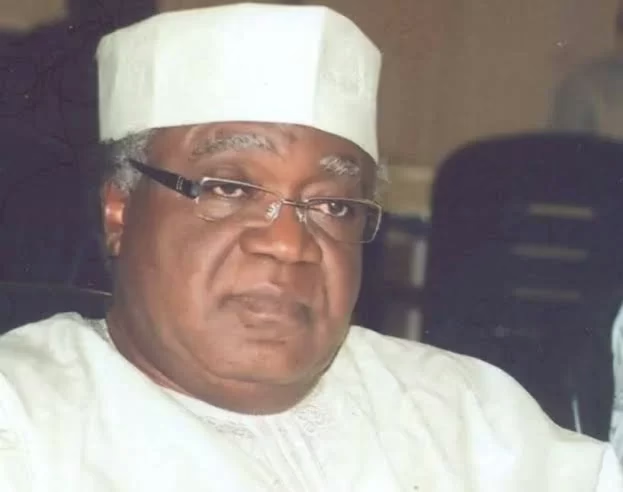My introduction to Professor Elaigwu came through his former mentor, the late Professor Ali Mazrui, who passed away on October 12, 2014. Meeting Professor Mazrui was a serendipitous event in my life.
At that time, I was residing in London and had established Adonis & Abbey Publishers (www.adonis-abbey.com) in 2003. The following year, I launched the periodical African Renaissance, initially a bi-monthly semi-academic journal inspired by the American publication Foreign Affairs. This was during a period dominated by ‘Afro-pessimism,’ while the Thabo Mbeki-led ANC government in South Africa was actively promoting the idea of an ‘African renaissance.’ A conservative UK newspaper had even mocked this concept by sarcastically asking, “When did Africa ever have a naissance?” Our journal aimed to challenge such dismissive narratives and to highlight Africa’s democratic and developmental potential.
The inaugural issue, released in June 2004, focused on ‘Afro-Arab Relations: Cooperation or Conflict.’ Contributors included notable figures such as Gamal Nkrumah (son of Kwame Nkrumah), Mammo Muchie, Helmi Sharawi, Kwesi Prah, Marcel Kittissou, and Chinweizu. It was Mammo Muchie, the Ethiopian scholar, who provided me with Professor Mazrui’s contact number and encouraged me to involve him in the journal. Already a towering intellectual figure, Mazrui was renowned not only for his scholarly work but also for his acclaimed documentary series, Africa – A Triple Heritage (1986). Given his stature, I doubted that my modest publishing venture would capture his attention. To my surprise, he was generous with his time when I reached out.
During our conversation, I mentioned some of his books I had read and even recited a few memorable quotes. However, I candidly expressed my dislike for his allegorical work, The Trial of Christopher Okigbo (1972), admitting that I had discarded it in frustration after reading it as an undergraduate. Mazrui paused before asking if I was mature enough to grasp the book’s message at that age. I argued that Okigbo’s condemnation in the afterlife for prioritizing his community (Biafra) over his poetry was misplaced, asserting that a writer’s community naturally precedes their art, and that subordinating art to community is not merely art for art’s sake but a celebration of communal identity.
After a tense silence, Mazrui responded by sharing his home phone number and inviting me to call anytime. This marked the beginning of a close intellectual relationship. I became his junior debate partner, often receiving emails from him seeking my perspective on various topics. Though initially deferential, I soon realized he valued spirited disagreement. Our publishing house also became his preferred European publisher. In 2006, we published his significant work, A Tale of Two Africas: South Africa and Nigeria as Contrasting Visions. Later, in 2009, I edited a volume titled Who is an African? Identity, Citizenship and the Making of the African Nation, to which Mazrui contributed two chapters and the Preface. Professor Elaigwu helped secure General Gowon’s Foreword for the book.
In 2011, we published Public Intellectuals and the Politics of Global Africa: Essays in Honour of Ali A. Mazrui, edited by Seifudein Adem, then Associate Director of Mazrui’s Institute of Global Cultural Studies at Binghamton University. Mazrui also served as an adviser to African Renaissance. Reflecting our close bond, I was appointed co-editor of the 2016 tribute volume, A Giant Tree Has Fallen: Tributes to Ali Al-Amin Mazrui, published by African Perspectives Publishers in South Africa, following his passing.
Encountering Professor Elaigwu
Professor Mazrui introduced me to his distinguished former student and mentee, Nigerian political scientist Professor Jonah Isawa Elaigwu. We quickly developed a strong rapport, with my publishing company releasing international editions of several of his works, including his landmark biography, Gowon: The Biography of a Soldier-Statesman. Through Professor Elaigwu, I also met influential figures such as Dan Agbese, co-founder of the iconic Newswatch magazine, who later published with us the authoritative biography Ibrahim Babangida: The Military, Politics and Power in Nigeria (2012).
Professor Elaigwu took a keen interest not only in my publishing enterprise but also in my personal career, encouraging me to return to Nigeria and manage the company locally. When I began writing a weekly column for the Daily Trust (2010-2020), he frequently sent me thoughtful critiques and feedback.
In 2010, Jennifer (Jamila) Abubakar, then wife of former Vice President Atiku Abubakar and one of our authors, invited me to join Atiku’s presidential campaign as he challenged President Jonathan for the PDP ticket. I eagerly accepted and was part of the campaign team from October to December 2010. This period allowed me to meet Professor Elaigwu in person, further strengthening our connection.
After Atiku’s unsuccessful bid, I returned to the UK but relocated permanently to Nigeria in early 2011. Professor Elaigwu insisted I needed “an academic base” and helped secure my appointment as a Lecturer in the Department of Political Science at Nasarawa State University, Keffi. He invited me to numerous events hosted by his Institute of Governance and Social Research (IGSR) in Jos and occasionally deputized me to present papers on his behalf. Despite declining health over the past decade, Professor Elaigwu remained intellectually vibrant. In June 2025, he sent me the manuscript of Leadership and Governance in Africa, requesting I review and index it. This work, along with Nigeria: A Compendium of Selected Violent Conflicts 1980-2021, will be published posthumously.
Beyond academia, Professor Elaigwu was a trusted adviser who employed wit and humor to guide those around him. For example, in 2015, we were among three Nigerian scholars invited to a global Africanist conference in Nairobi to discuss preserving Professor Mazrui’s intellectual legacy. On the flight with Kenyan Airways, I confided my fear of turbulence to him. He reassured me with a gentle smile, “Everyone here is as afraid as you are. They just hide it. So hide yours too.”
He also frequently used the Socratic method, posing questions that led you to your own conclusions. After Buhari’s 2015 election, many academics received invitations-likely from then Kaduna State Governor Nasir El Rufai’s office-to express interest in government roles. Though honored, I hesitated due to my critical stance toward Buhari and the APC in my Daily Trust columns. I sought counsel from respected figures including Bishop Matthew Kukah, Fr. George Ehusani, and Professor Elaigwu.
“Are you worried that accepting a political role would silence your voice as a critic?” he asked with a grandfatherly grin.
“Yes, that’s a major concern,” I replied.
He smiled knowingly. “I believe you’re mistaken. Holding office doesn’t silence criticism; it transforms it from public outcry into constructive, diplomatic advice.”
He continued with probing questions: What impact do you hope to make? Are you prepared for the sleepless nights that come with political responsibility?
Though we spoke often by phone, the last time I saw him was in November 2024 when I recorded his goodwill message for my Inaugural Lecture. Despite his frailty, he insisted on walking me to the door. When I received a call from one of his daughters in the early hours of July 22, 2025, I immediately sensed the gravity of the news. The shock of his passing overwhelmed me for the next day. Professor Elaigwu was a man of great integrity and kindness.
Born on March 10, 1948, in Otukpo, Benue State, Professor Elaigwu passed away peacefully in Jos, Plateau State, around 2 AM on July 22, 2025, at the age of 77. He served as President of the Institute of Governance and Social Research (IGSR) in Jos and was a leading expert in comparative federalism and civil-military relations. He authored the foundational concept paper for the National Council on Inter-Governmental Relations (NCIR), where he served as Director-General until the council was dissolved under the Abacha regime.
His academic journey took him from Ahmadu Bello University to the University of Jos, where he successfully brought the legendary Ali Mazrui to hold a concurrent Faculty Chair. His distinguished roles included Executive Committee Member of the Research Committee on Federalism and Federation, Chairman of the Board of Trustees at the United Nations Institute for Training and Research (UNITAR), member of the Presidential Advisory Committee, and Director of the New Nigerian Development Company (NNDC) during its prime.

















